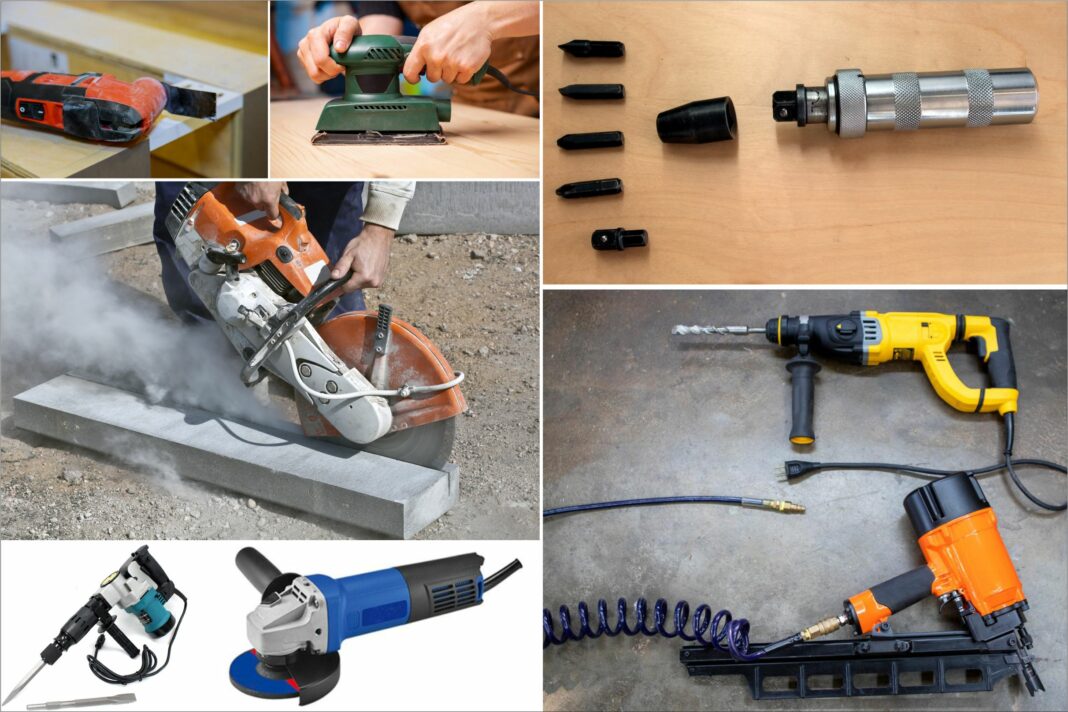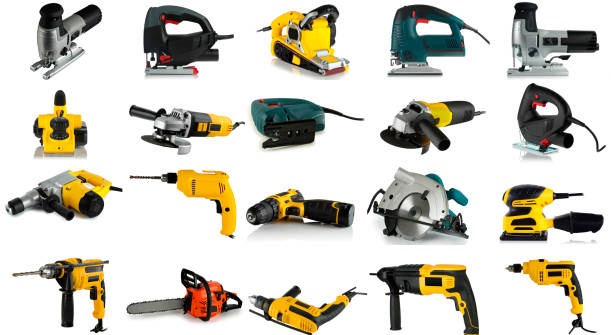Are you curious to know if a stationary power drill is considered a fixed plant? Well, get ready to dive into the world of power tools and find out!
Imagine this: you’re in your dad’s workshop, surrounded by all kinds of tools. Among them, you spot a stationary power drill. But here’s the question – is it just another tool, or does it fall into the category of fixed plants?
Buckle up, my friend, because we’re about to explore the fascinating realm of power tools and discover the answer to whether a stationary power drill can be considered a fixed plant. Let’s get started!

Is a Stationary Power Drill a Fixed Plant?
When it comes to tools and equipment in the construction industry, understanding the classification of different machinery is crucial. One particular question that often arises is whether a stationary power drill falls under the category of a fixed plant. In this article, we will delve into the details of what constitutes a fixed plant and examine whether a stationary power drill meets the criteria. By the end, you will have a clear understanding of the classification of a stationary power drill and its implications in the construction industry.
Understanding Fixed Plants
Before we determine whether a stationary power drill can be classified as a fixed plant, let’s first understand what fixed plants are. Fixed plants are defined as machinery or equipment that is permanently attached to a building or structure and cannot be easily moved. These plants are essential for various industrial processes and often serve a specific function within a facility. Examples of fixed plants include generators, compressors, conveyor systems, HVAC systems, and more.
Fixed plants are typically designed and installed to support the construction or production process and are considered a permanent part of a building or structure. They provide crucial services, such as power supply, ventilation, or material transportation. The classification of a piece of equipment as a fixed plant has certain implications in terms of regulatory requirements, maintenance, and safety measures.
Criteria for Classifying a Stationary Power Drill as a Fixed Plant
Now that we have a clear understanding of fixed plants, let’s explore whether a stationary power drill can be considered one. To determine this, we need to evaluate the criteria for classifying machinery as a fixed plant.
1. Permanently attached: For a piece of equipment to be classified as a fixed plant, it must be permanently attached to a building or structure. In the case of a stationary power drill, it is typically mounted on a workbench or fixed to the floor. While it may not be permanently attached in the same way as an HVAC system, it can still be considered permanently installed based on its usage.
2. Integral to the process: Another criterion for classifying equipment as a fixed plant is that it must be integral to the construction or production process. A stationary power drill plays a significant role in various construction activities and is often used for drilling holes, fastening materials, or creating anchor points. Its essentiality to the process strengthens the argument for classifying it as a fixed plant.
3. Immobility: A fixed plant should not be easily movable. While a stationary power drill can be detached from its fixed location, it requires significant effort and is typically not done frequently. This immobility aligns with the concept of a fixed plant, where the equipment is meant to remain in one location for extended periods.
Benefits of Classifying a Stationary Power Drill as a Fixed Plant
Classifying a stationary power drill as a fixed plant has several benefits, both from a regulatory and operational standpoint. Let’s explore these benefits:
- Regulatory Compliance: By classifying a stationary power drill as a fixed plant, it can be subject to specific regulations and standards. This ensures that proper safety measures and maintenance protocols are in place, reducing the risk of accidents or malfunctions.
- Centralized Access: When a stationary power drill is fixed in a designated area, it is easily accessible to workers. This enhances productivity and efficiency as there is less time wasted in searching for the equipment.
- Consistency in Performance: When a stationary power drill is permanently installed, it eliminates the need to adjust settings repeatedly, ensuring consistent drilling performance. This is particularly important for precision drilling tasks.
Key Takeaways: Is a Stationary Power Drill a Fixed Plant?
- Stationary power drills are considered fixed plants in the context of machinery and equipment.
- A fixed plant refers to equipment that is permanently installed and not easily moved.
- Stationary power drills are commonly found in workshops and industrial settings.
- They are designed to drill holes into various materials with precision and efficiency.
- Understanding the classification of equipment helps ensure proper maintenance and safety protocols.
Frequently Asked Questions
When it comes to stationary power drills and fixed plants, there may be some confusion. Here are some commonly asked questions to help clarify the matter.
What is a stationary power drill?
A stationary power drill, also known as a bench drill press, is a tool used for drilling holes into various materials. Unlike handheld drills, a stationary drill is mounted on a fixed stand or workbench to provide stability and precision. It is operated by lowering the rotating drill bit into the material to create the desired hole.
This type of drill is commonly used in woodworking, metalworking, and other industries where accuracy and control are important. Its fixed position allows for repetitive drilling tasks and ensures consistent results.
What is a fixed plant?
A fixed plant refers to permanent machinery or equipment that is installed or mounted in a specific location and performs a specific function. These plants are typically designed for long-term use and are not intended to be moved or relocated easily. Examples of fixed plants include boilers, conveyor systems, and large-scale industrial machinery.
Fixed plants are often an integral part of industrial processes, manufacturing operations, and construction sites. They are built to handle heavy-duty tasks and are vital for the smooth operation of various industries.
Is a stationary power drill considered a fixed plant?
While a stationary power drill shares some similarities with a fixed plant, it is not typically categorized as one. Although it is a stationary tool, a power drill is generally considered portable and not permanently fixed in one location.
Stationary power drills are often used in workshops or job sites where they can be moved around to different work areas as needed. They are designed to provide stability and precision during drilling tasks but are not intended to be permanently installed like a fixed plant.
Can a stationary power drill be used as part of a fixed plant?
Yes, a stationary power drill can be incorporated into a fixed plant setup, especially in cases where drilling operations are required in a specific location on a regular basis.
In such instances, the stationary power drill may be secured to a workbench or mount within a fixed plant or production line. This allows for efficient and accurate drilling operations to take place without the need for constantly repositioning or readjusting the tool.
What are the advantages of using a fixed plant over a portable power drill?
Fixed plants offer several advantages over portable power drills. Firstly, they provide stability and precision due to their fixed position, which is crucial for tasks that require accuracy and consistent results.
Another advantage is that fixed plants are designed to handle heavy-duty tasks and can often accommodate larger and more powerful drilling equipment. They are also integrated into a larger industrial setup, allowing for streamlined work processes and increased productivity.

Summary
So, is a stationary power drill a fixed plant? The answer is yes. Fixed plants are equipment that are permanently installed in a building or structure, and a stationary power drill fits this definition. It cannot be easily moved around and is meant to be used in a specific location.
A stationary power drill is used for drilling holes in various materials and is typically mounted on a workbench or attached to the floor. It is not portable like a handheld drill and is designed to stay in one place. So, if you’re wondering whether a stationary power drill is considered a fixed plant, the answer is clear – it is indeed a fixed plant.
